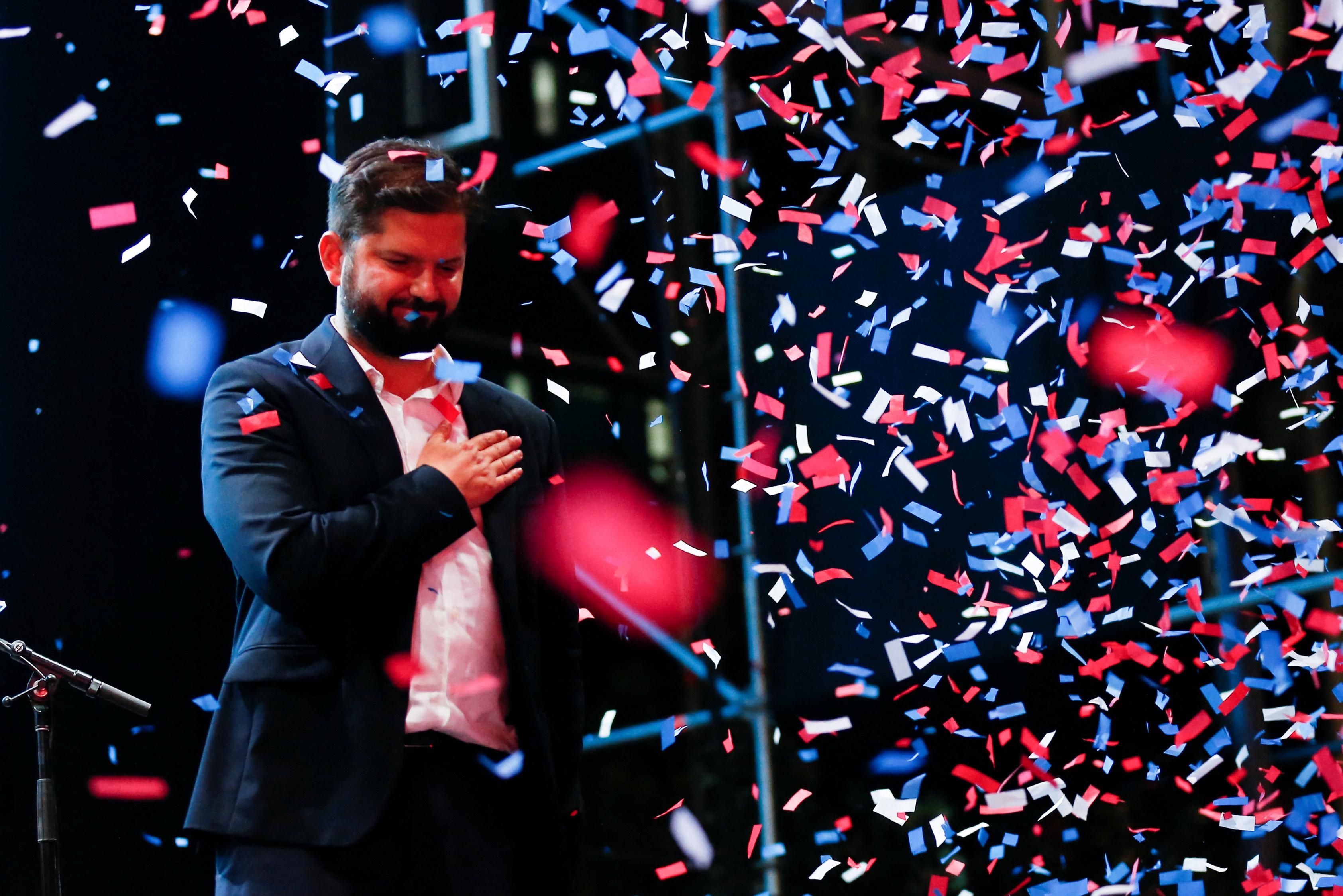Boric wins in Chile. In the end, it wasn’t even close. Faced with two diametrically opposed choices for president in Sunday’s presidential runoff, more than 55 percent of Chilean voters went with leftwinger Gabriel Boric instead of his far-right opponent José Antonio Kast. The ten-point gap was so wide that Kast conceded before the count was even done. Boric, 35, now becomes the youngest president of any major nation in the world. Elected just two years after mass protests over inequality shook what was one of Latin America’s most reliably boring and prosperous countries, Boric has promised to raise taxes in order to boost social spending, nationalize the pension system, and expand rights indigenous Chileans. But with the country’s legislature evenly split between parties of the left and the center-right, the new president will likely have to compromise on his sweeping pledge to make Chile the land where neoliberalism “goes to its grave.”
More from GZERO Media
Fifty years after the fall of Saigon (or its liberation, depending on whom you ask), Vietnam has transformed from a war-torn battleground to one of Asia’s fastest-growing economies—and now finds itself caught between two superpowers. Ian Bremmer breaks down how Vietnam went from devastation in the wake of the Vietnam War to becoming a regional economic powerhouse.
Eurasia Group and GZERO Media are seeking a highly creative, detail-oriented Graphic and Animation Designer who lives and breathes news, international affairs, and policy. The ideal candidate has demonstrated experience using visual storytelling—including data visualizations and short-form animations—to make complex geopolitical topics accessible, social-friendly, and engaging across platforms. You will join a dynamic team of researchers, editors, video producers, and writers to elevate our storytelling and thought leadership through innovative multimedia content.
While the Catholic world prepares for the funeral of Pope Francis on Saturday – the service begins at 10 a.m. local time, 4 a.m. ET – certain high-profile attendees may also have other things on their mind. Several world leaders will be on hand to pay their respects to the pontiff, but they could also find themselves involved in bilateral talks.
The Democratic Republic of the Congo and an alliance of militias led by the notorious M23 rebels announced a ceasefire on Thursday after talks in Qatar and, after three years of violence, said they would work toward a permanent truce.
Prime Minister Narendra Modi has blamed Pakistan for Tuesday’s deadly terrorist attack in Kashmir, and he’s takenaggressive action against its government.
Have you stayed atop GZERO’s news coverage this week? Here's your chance to prove it.
“When things are going fine, nobody really tests the skills and talents of their financial advisor, but this is a moment where really good advice can be extraordinarily powerful,” says Margaret Franklin, CFA Institute's CEO and President. In conversation with GZERO’s Tony Maciulis, Franklin describes the current financial climate as “maximum uncertainty,” rating it a 10 out of 10 on the risk scale.
On Wednesday, Donald Trump said he would deliver a “fair deal” with China and that he’d be “very nice” to the country after meeting with major retailers. But Beijing denies that there are any ongoing talks and has told the US it must cancel its unilateral tariffs before China will broker any negotiations.
